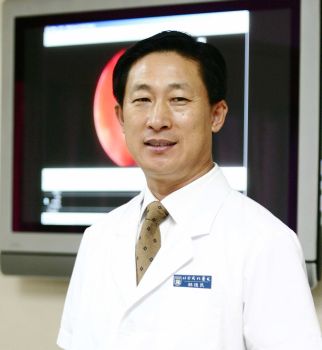
Q&A: 'THERE IS NO NATIONAL BOUNDARY FOR MEDICAL CARE'
Malgorzata Stawecka
- For millions of people in developing countries, having cataracts means permanently impaired vision or even blindness. While treatment can fix the problem, the cost is well beyond most sufferers’ reach.
But thanks to a group of Chinese medics, this expensive surgery is now becoming more widely available. “Love is borderless” – this motto guides Dr. Han Demin in his humanitarian efforts to improve the lives of thousands of people around the world.
Han, the superintendent of Beijing Tongren Hospital, director of Beijing Otolaryngology and director of the World Health Organisation (WHO) Collaborating Centre for the Deaf, was honoured with a South-South Award for his outstanding commitment to humanitarian causes on Sep. 23, one day prior to the start of the 66th session of the United Nations General Assembly.
As of 2010, the WHO estimates that there are 20 million people worldwide suffering from cataracts,a clouding on the lens of the eye. Of these, five million are in China, and the number is increasing by 400,000 to 600,000 every year.
Han, along with his team of “flying doctors”, founded the Brightness Action Programme, launched in 2003 and dedicated to restoring eyesight to cataract patients across Africa and Asia. More than 50,000 people have been treated since the programme began, with some 14,000 in Africa alone.
“As a doctor with certain administrative strength, I am capable of paying in-depth attention to the society’s disadvantaged groups by organising more extensive social forces,” Han told IPS.
“I believe that greater contribution to blind and deaf patients can be made through unremitting efforts and summoning larger forces from the society by the propaganda effect of South-South Awards,” he added.
In an interview with IPS correspondent Malgorzata Stawecka, Han Demin talks about his biggest achievements in the field of humanitarian assistance as well as outstanding issues that have to be addressed in the foreseeable future.
Q: What inspired you to create the Brightness Action Programme?
A: In 1999, WHO launched ‘Vision 2020: the Right to Sight’ and stated the elimination of cataract as a priority strategy for the prevention of blindness in developing countries. In 2003, the National Blindness Prevention Steering Group of China started Brightness Action Programme, with the aim of “sending the most advanced medical technology and the best service to the most needed areas and people”.
http://www.ipsnews.net/2012/10/qa-there-is-no-national-boundary-for-medical-care/

